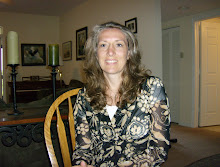 The Know-It-All: One Man's Humble Quest to Become the Smartest Person in the World
The Know-It-All: One Man's Humble Quest to Become the Smartest Person in the World by
A.J. Jacobs
My rating:
3 of 5 stars
I read this book because of a recommendation from the author of "The Art of Non-Conformity," Chris Guillebeau. In that book, Guillebeau has an interesting 2-page list of items to accomplish which he feels would be the equivalent, or better, of earning a high-priced graduate degree. Several of the things on his list were things I felt I would like to accomplish, so even though I had not heard of this book I put it on my reading list.
The author, A.J. Jacobs, decided he wanted to read the entire Encyclopaedia Britannica. I assumed the book was probably a Reader's Digest-style condensed version of the encyclopedia. It turned out to be more of a personal memoir, with a sampling of some of the more "interesting" tidbits of knowledge he gained while reading from A to Z.
Jacobs admits that part of his motivation in taking on this huge challenge came from his desire to do something his high-achieving father had started but never finished. He also discloses enough about himself that gave me the distinct impression that he is obsessive, insecure, immature, annoying, socially awkward, self-oriented, show-off... I could go on. At the same time, he is a capable writer, and I laughed out loud several times early on in the book. Unfortunately, the laughs kind of died out, which left only his bad language and obsession with the crude, quirky, and random facts he was learning. He also seemed compelled to share stories about the social interactions he had with co-workers, family members, and others that made me cringe for him. His "issues" seemed to dictate that every encounter with another human would end with him saying something that made him look like a complete (and annoying) idiot. Most of the time I really felt sorry for his wife, who sounded quite normal.
He did have some redeeming moments. He seemed to be self-aware enough to want to be better than he was. He was searching for some higher meaning and shared bits of wisdom he found along the way. Reading the entire encyclopedia took him about a year, and I really admire him for not giving up. During this time he and his wife were desperately hoping for a baby, surrounded by all their fertile friends while they struggled through a very discouraging time working with fertility specialists, wondering if they would ever have a child of their own. Despite all his personality/emotional issues, it did come across that he genuinely loved his wife, and truly wanted to be a good father to his (hopefully) future child.
Jacobs came to some conclusions about life, the quest for knowledge, and humanity in general. Even though he read about many corrupt and evil individuals, he also read about many who accomplished some pretty wonderful things that have made this world an amazing place to be. He came to the realization that he took too many things for granted, that there was much more to life than he had ever realized, and that his desire to be the smartest person in the world had only made him understand how much he still did not know. The knowledge he gained was not simply a collection of facts to try to remember, but all that information helped him see the bigger picture. He was more at peace with himself and the world, and more grateful and optimistic.
Reading "The Know-It-All" helped me rule out the possibility of ever wanting to read the entire encyclopedia. Not that I ever intended to. It feels kind of like when you hear of a mistake someone made that caused them a lot of grief, and you make a mental note to never do that, and therefore save yourself the resulting grief. I do enjoy owning a set of my own, but I am content using it as a reference when I need it. I have also made a mental note to be more grateful, more humble, and more optimistic.
View all my reviews
 A Funny Thing Happened on the Way to the Future...: Twists and Turns and Lessons Learned by Michael J. Fox
A Funny Thing Happened on the Way to the Future...: Twists and Turns and Lessons Learned by Michael J. Fox


